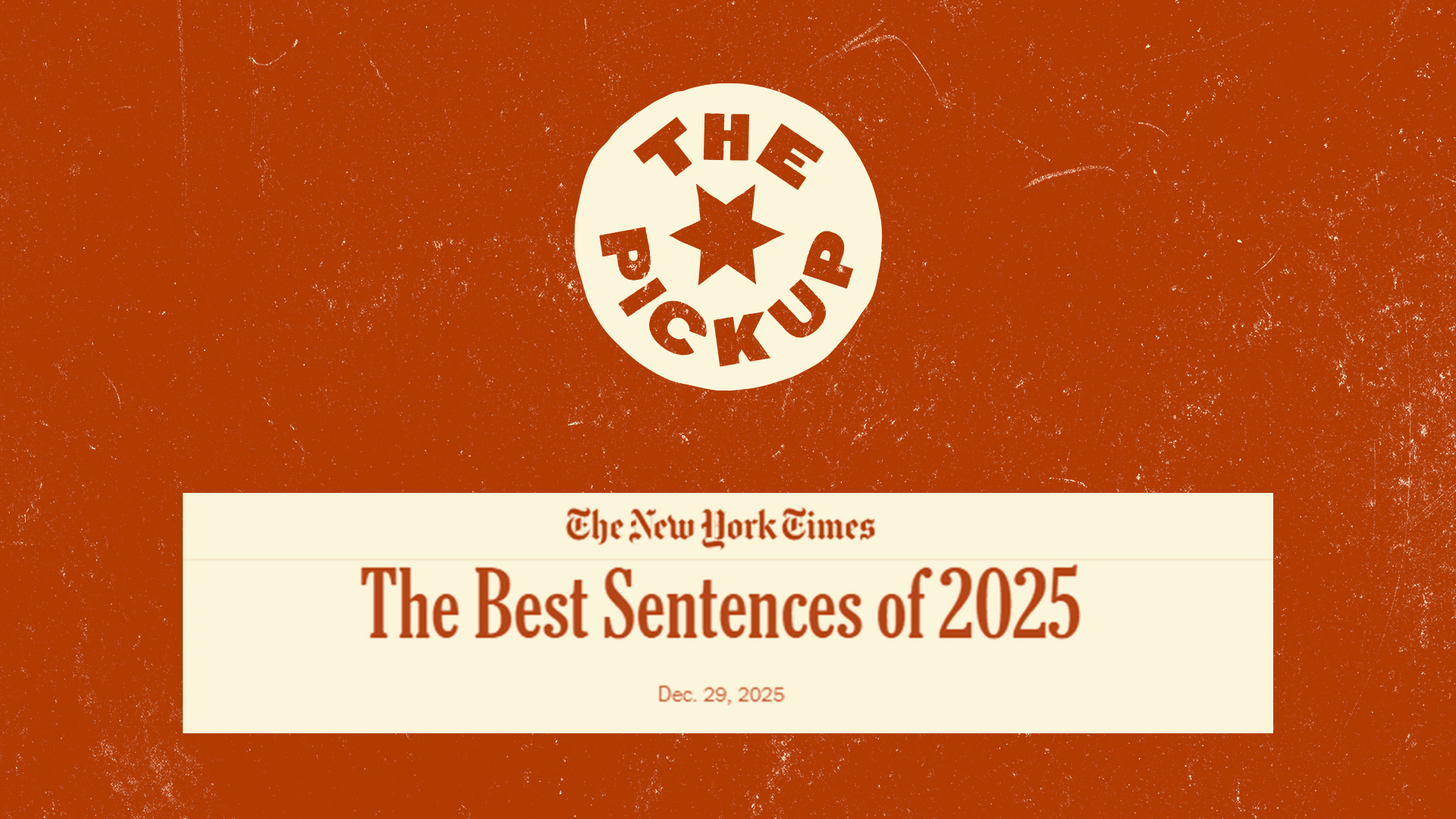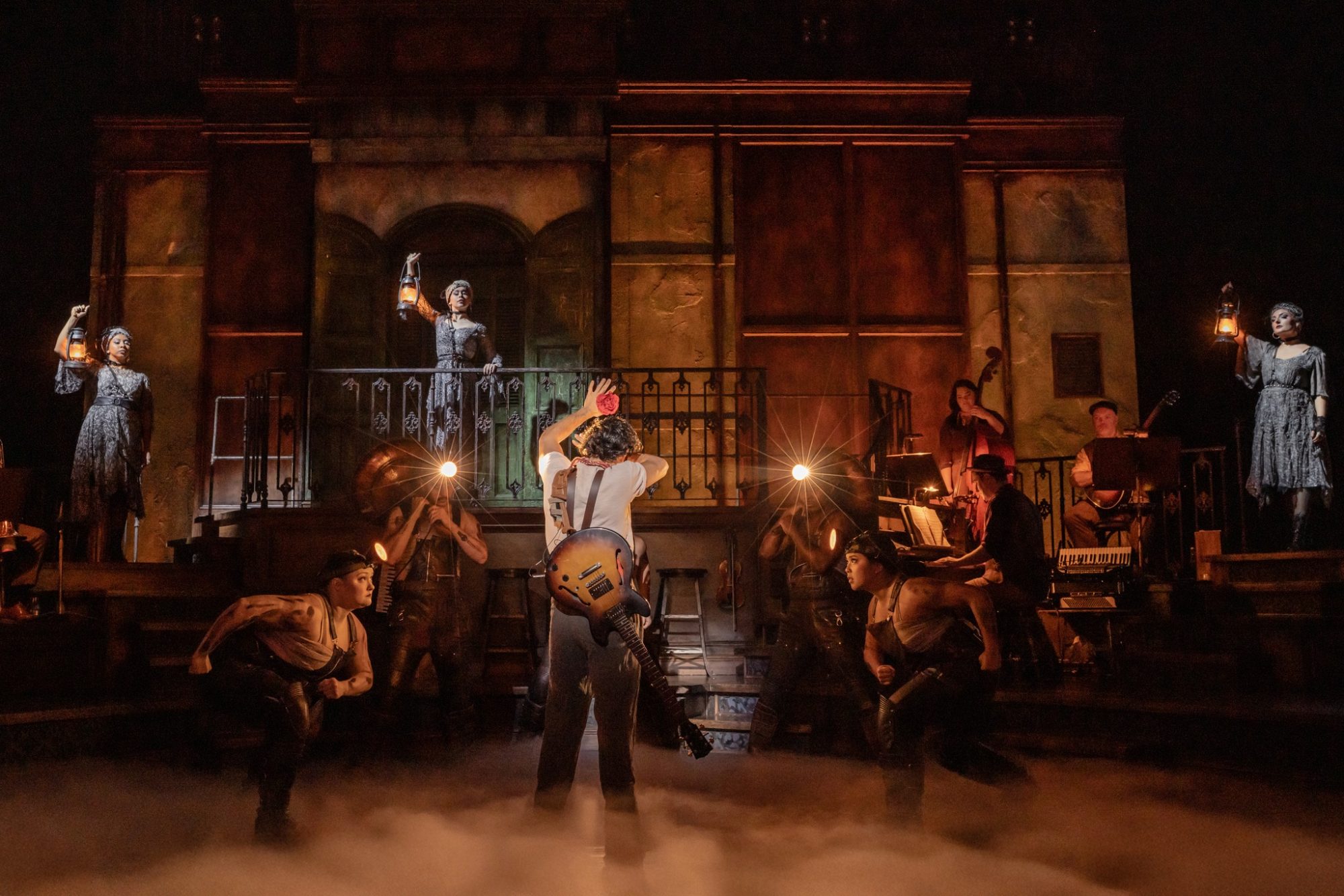Summer has arrived in Oklahoma; the showers have passed, for the most part, and what are left are gradually rising temperatures, the din of ice cream trucks waxing and waning just out of your hearing, and the blessings of good shade-trees being realized over, and over, and over. For some, summer is a bastion of the Good Time, and for others, summer is a hell to be endured only by the respite of a good book and better air conditioning. We thought we’d invite you into a few of our favorites.
This is not a list of recent best-sellers. This is the true list of favorites of The Pickup staff and writers; take this inspiration and do with it what you will. From hot to cold, bliss to anger, love to un-love, we’ve tried to cover every mood you might have with this list. Let us know in the comments what you’re reading.
When You’re Sitting Outside In This Crazy Heat
McCarthy’s last Tennessee novel is also the best of them, a hefty blend of comedy and tragedy in the life of Cornelius Suttree, a son of privilege who falls into the life of a houseboat fisherman. Suttree winds throughout the seasons, but the titular character suffers a case of Typhoid fever late in the book that reads kind of the way a Tulsa summer feels. McCarthy’s freakish imagination isn’t totally uninhibited in this one, but it definitely Goes There, if you catch my drift. —Matt
Pilgrim at Tinker Creek, Annie Dillard
In this 1974 classic of nature writing, nothing much happens, and everything happens. Dillard just looks—at bugs, at trees, at the weather—and her friendly, curious voice guides you to look with more love at the delicate, messy, seething life in front of you, including the sweat that’s dripping into your eyes. —Alicia
One of the funniest novels I’ve ever read, a pitch-perfect satire about one Black man’s attempt to return racial segregation and slavery to sunny Los Angeles. —Matt
The First Bad Man, Miranda July
Guffaw doesn’t even begin to describe the kinds of noises I made reading this hilarious book. Even if I tell you that it’s about a woman trying to assert herself in her relationships and her job as a self defense tape marketer, the twists and turns of it are impossible to guess. Its laughs are huge, but its heart is somehow huger. —Zack
DeLillo’s bizarre, hilarious, dystopian surrealism can definitely match an Oklahoma heat hallucination. Skip the movie (aside from the closing grocery store dance sequence, which is perfect) and go straight to the source. —Alicia
When You’re Inside With The AC Cranked
Land of Desire, William R. Leach
This history of the development of consumerism in America between 1890 and 1932 had me hooked. Leach gives a lot of attention to the creation of department stores and their fabulous displays of glass, fabric and light as Americans left the countryside after the Civil War for wage labor in the cities. Basically the new mode of consumer capitalism dominated, bringing religion, familial rituals and smaller modes of production all to heel. —Matt
The Magic Mountain, Thomas Mann
This beast of a book is a literal fever dream, the story of a young man who goes to visit his cousin in a sanatorium in the Alps and ends up so entranced by the world “up there” that he doesn’t come down again—until the enchantment shatters with the advent of World War I. Published in Germany in 1924, it’s an allegory of life in a Europe caught in “the great stupor” and hurtling toward doom. It’s got it all: sexual tension, wild characters, philosophical battles, seances, and the most terrifying depiction of being stuck in a snowstorm ever written. Good times. —Alicia
Pictures! The iconic Japanese printmaker Hokusai, who lived from 1760-1849, initially published this as an art instruction manual to make some spare cash. Soon enough, he removed the text and published only the images, and the result was an explosion of success. The book is a frenzy of perfectly captured moments, from animals and humans to demons and architecture. Hokusai’s grasp of movement laid a massive groundwork for the artists who came after him. Leafing through this book is a great way to spend a quiet afternoon. —Zack
When You’re Sitting On The Beach
My favorite Thompson novel by a country mile. It’s the story of a remorseless and manipulative killer who also happens to be the county sheriff. Born in Anadarko, Thompson enjoyed a career that took him to Hollywood where he worked with Stanley Kubrick and Robert Redford. —Matt
Leaving The Atocha Station, Ben Lerner
Lerner’s first novel is his funniest; watching his brilliant dumbass narrator lie, cheat, do drugs, and make up poetry on the streets of Madrid is as much of a treat as are his serious thoughts on literature and poetry. —Zack
A wildly experimental and moving book on themes of travel: through airports, time and memory, cities and relationships, the sinews of the body. The sharp, surprising translation from the Polish is by Tulsa’s own Jennifer Croft. —Alicia
Masters of Atlantis, Charles Portis
This book is as funny as the TV show Jackass. —Matt
When You Hate Your Dumbass Job
Despite the title, this is a work of philosophy; it analyzes the concept of bullshit as a concept worth tearing apart, and boy, does he. You can get through this little book in a day, and it might give you some insight as to the hallucinatory world of artificial intelligence that we’re living in (and which Frankfurt just glimpsed the beginning of before his death in 2023). —Zack
Graeber examines the spiritual violence of the shitty workplace the way the anthropologist might consider an unearthed artifact. Part of his research process included sending out a survey that received tens of thousands of responses to his request for stories about bullshit jobs. —Matt
The Burnout Society, Byung-Chul Han
Han’s short critiques of neoliberalism are the most fun I’ve ever had reading philosophy. What he calls “the death drive” of late capitalism takes vivid and relatable form here. —Alicia
Nickel and Dimed, Barbara Ehrenreich
Ehrenreich’s work of reportage, for which she worked minimum wage jobs during the day and wrote about it at night, is about as good as journalism gets. —Matt
It didn’t have to be this way! This synthesis of history, folklore, anthropology, and half a dozen other disciplines usefully contrasts the market economy with gift economies around the world. Hyde draws on the double meaning of “gift” to lift up creativity not as a commodity to be hoarded or exchanged but as an inexhaustible gift that grows in the sharing. —Alicia
When You Need To Think About The State Of The World More Than You Already Do
Parable of the Sower/Parable of the Talents, Octavia Butler
The unrivaled queen of pulp-as-protest, Butler wrote vampire fiction, time-travel fiction, and alien fiction, all of it working as cultural commentary and social critique while maintaining a read-it-all-in-one-sitting flow. This is her dystopia, and it might hit harder today than it did when it was written in 1993 (Sower is the first; Talents is the 1998 sequel), as we edge closer and closer towards her horrified vision of America as a Mad Max hellscape of water wars, walls, and violence. —Zack
Field Notes from a Catastrophe, Elizabeth Kolbert
As climate change becomes global disaster, sober reporting is a valuable resource. First published in 2006 and updated in 2015, this New Yorker writer’s book is a quick and potent read, blending accessible research with vigorous storytelling that brings the stakes to life. —Alicia
Notes of a Native Son, James Baldwin
Of everything Baldwin wrote, this collection of essays stands out for its all-out assault against bullshit literature and white supremacy. Baldwin practically invented the idea of studying whiteness, and does so with a humor and a heart that will leave you stunned at the width and breadth of his brain. The best time to read Baldwin was yesterday. The second-best time is now. —Zack
When You Need A Quick Escape
A Wizard of Earthsea, Ursula K. LeGuin
Here’s your reminder that J.K. Rowling stole the idea of wizard school from Ursula LeGuin. —Matt
A collection of odd, visceral, and sometimes very funny bits from the mind of a formidable poet and classical translator, on subjects such as John Cage, Guantánamo, dinner parties, swimming, poverty, Roget’s Thesaurus, and her father. The centerpiece, “Lecture on the History of Skywriting,” imagines the creation of the world from the point of view of the sky itself and involves a conversation between the sky and Godot (from that one play), whose first name turns out to be Rusty. —Alicia
The ultimate satirical takedown of toxic positivity, religious pomposity, political idiocy, and other dangerous human foolishness, coming to you live from 1759. —Alicia
Right Ho, Jeeves, P.G. Wodehouse
The Jeeves books are so dumb and so fun. The ridiculous Bertie Wooster gets in all sorts of pickles with his ridiculous friends who have names like Gussie FInk-Nottle, Aunt Dahlia, and Tuppy Glossop; the implacable Jeeves does the behind-the-scenes machinations to make all well. A very silly antidote for very grim times. —Alicia
When You’re Going Through Something Hard
When Things Fall Apart, Pema Chodron
This is the ultimate “I’m going through some shit” book; Chodron is a Buddhist nun who brings a lifetime of experience in the real world to her book on difficulty. Read it to remember how connected everyone is in their suffering. Fun! —Zack
Sometimes, it’s the principle of the matter. Dixon captures precisely in this short, funny novel how taking a moral stand leaves you drained, alienated and ultimately unsatisfied. —Matt
The Myth of Sisyphus, Albert Camus
Existentialism has its problems, but it’s a useful worldview in a pinch. What do you do when you can’t escape your meaningless fate? The invitation to “imagine Sisyphus happy” in this diamond-sharp little book is a galvanizing push to find liberty within limitation. —Alicia
H Is For Hawk, Helen Macdonald
Probably the most achingly beautiful book about grief I’ve ever read. In short, Macdonald copes with the death of her father by getting really, really into training hawks. Macdonald is an astounding writer, and the hawk sequences are cool as hell, and the grief is condensed and specific. —Zack
When You Need Inspiration
A strange and beautiful novel. Sebald can go off on a tangent like Michelangelo painting a corner of the Sistine Chapel. It’s a little densely written, but once you learn to sit with the flow of his sentences, you’re rewarded with a wealth of new knowledge; Sebald uses his “fictional” novel to bring the reader closer with real-world events, humanizing historical events which will stick in your craw for weeks. —Zack
The Shape of a Pocket, John Berger
“Ways of Seeing” is Berger’s most famous book on how to “read” art in the context of society, but I love this one too for the way it thinks out loud in ruminations on paintings, cows, bodies, and many other precious realities. —Alicia
You get alternate universes, militant feminism, a Great Depression that never ended and lesbians who use technology to procreate in this funny novel that was way ahead of its time for 1975. —Matt
The Creative Habit, Twyla Tharp
Creativity is work, and we can learn to do it. This practical guide to practicing creativity comes from a choreographer with a 50-year career in a demanding art form and includes prompts like “before you can think outside the box, you have to start with a box” and “never have a favorite weapon.” —Alicia
When You’re Sitting Under The Veranda During A Perfect Oklahoma Storm
You’ve probably heard about this book a million times, but just hearing the timeless wisdom of be here now doesn’t do it justice. Ram Dass’s illustrations are free-flowing and often hilarious, and help drive the point home in ways that are deeper than mere text. —Zack
Watching the trees heave in an Oklahoma thunderstorm? We’re not that different. Powers links many storylines together in this gorgeously crafted symphonic novel, in which the lives of trees and the lives of humans interweave and affect each other. —Alicia
Oklahoma: Foot-loose and Fancy-free, Angie Debo
Debo wins for best prose stylist in the history department. —Matt
When You Just Got Dumped
Mary Oliver gets a lot of online love and hate for her simple, effective poems about nature and animals. The truth is that she’s a technical freak of nature, and can turn a poem about anything into a poem about anything else, and was massively successful, and everyone is jealous of her. Dream Work is, to me, the pinnacle of her great combination of power and pleasure: something eminently readable while also powerful. Catharsis is the name of the game with Oliver; by the end of this book, your breakup will feel a little easier. —Zack
Raging? Meet this bitch. She makes her own witchy world on the island she’s exiled to after turning her crush’s preferred woman into an actual monster. With lions and herbs (and, for a while, that sinewy rascal Odysseus) as companions, this Circe learns to live with the dangers and exhilarations of her own power. —Alicia
The End of the Affair, Graham Greene
If you’re really mad about getting dumped, Greene’s got you. Britain’s preeminent spy-pulp-literaturist of the mid-20th-century writes with scathing preciseness about a dissolving affair. —Zack
When You’re In Love
Buckle up. Nelson is a highly experimental writer and thinker, and her book on love oscillates between harsh and beautiful. Her writing on pregnancy is especially poignant, investigating, with an arched eyebrow, “the pregnant woman who thinks. Which is really just a pumped-up version of that more general oxymoron, a woman who thinks.” —Zack
Less about being in love than just being in life, this slim, undefinable novel—written as a letter from an “I” to a “you”—vibrates with desire, confusion, and passionate presence in every mote of light and brush of wind on skin. If you’ve ever had it bad for someone, you’ll recognize the state. —Alicia
Notes On Shapeshifting, Gabi Abrão
Yes, it’s a little Tumblr-y. That’s fine. Abrão is good at getting to the wide, delicious points of love, especially when it makes you feel like a teenager again. While she’s a little obvious with her poetry, her poems are fun to read, especially in a bath, with candles lit, thinking about the object of your affection. —Zack
Other Stuff Worth Reading/Miscellaneous
The Earth Dies Streaming, A.S. Hamrah —Matt
The Red Mars series, Kim Stanley Robinson —Matt
Audiobooks! Jonathan Strange and Mr. Norrell (read by Simon Prebble), Remembrance of Things Past (read by John Howe), The Left Hand of Darkness (read by George Guidall) —Alicia







